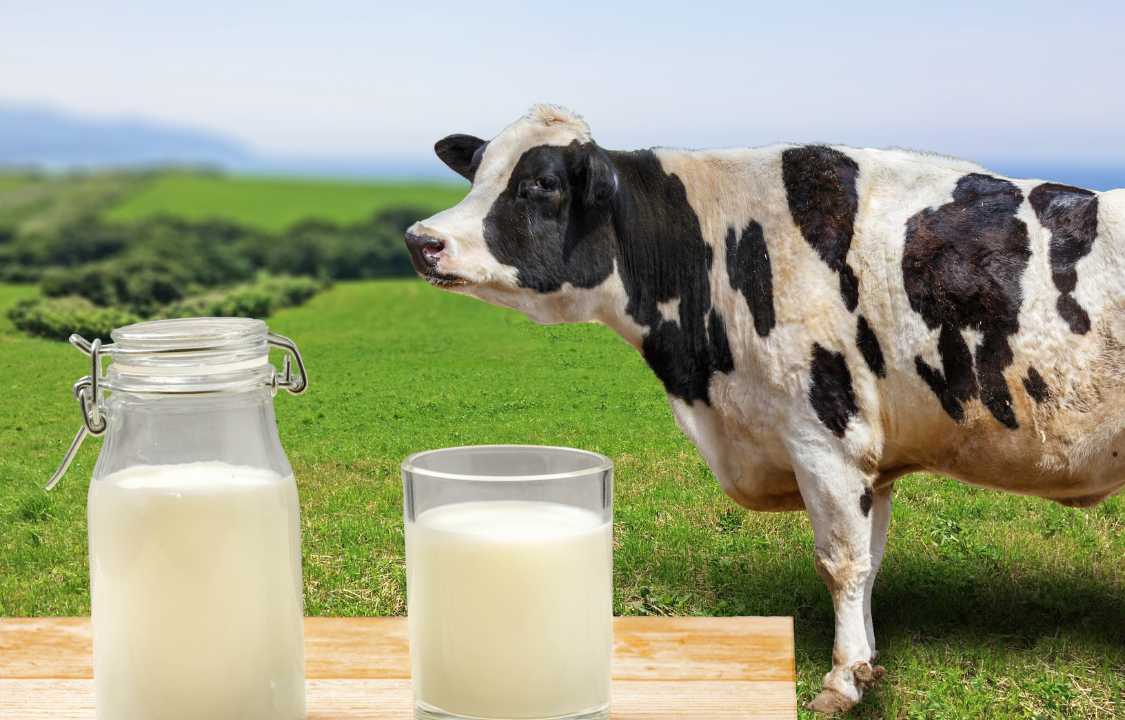Health Benefits
Cow’s Milk Still Beats Plant-Based Milks When It Comes to Protein
The supermarket shelves once dominated by traditional dairy milk now showcase an array of plant-based milk alternatives, reflecting a significant shift in consumer preferences driven by environmental and health considerations. As this trend continues to gain momentum, it raises essential questions about the nutritional equivalence of plant-based milk compared to dairy. Recent research, presented at the American Society for Nutrition’s conference, suggests that plant-based milk, while increasingly popular, does not match the protein content of cow’s milk—a crucial nutritional element that consumers should consider. This comprehensive exploration delves into the findings of this study, highlighting the nutritional distinctions between plant-based and dairy milk, and offers practical insights for individuals striving to make informed choices regarding their milk consumption.
Dairy and Plant-Based Milks: A Nutritional Divide
The transition from cow’s milk to plant-based alternatives has gained momentum in recent decades, driven by concerns related to the environment and health. Many consumers perceive plant-based milk as a more nutritious choice, leading to a proliferation of dairy-free milk options in the market. However, the study presented at the American Society for Nutrition’s conference paints a different picture, indicating that plant-based milk may not measure up nutritionally, particularly in terms of protein content.
It is essential to recognize that unless consumers meticulously scrutinize nutrition labels, they may remain unaware of the disparities in the nutritional profiles of various milk options. Abigail Johnson, PhD, RD, Assistant Professor at the University of Minnesota and the study’s lead investigator, emphasizes that current U.S. dietary guidelines recommend cow’s milk or soy milk as reliable sources of calcium and vitamin D. Therefore, the study sought to comprehensively assess the nutritional content of plant-based milk alternatives available in the U.S. market, including almond, cashew, coconut, flax, hazelnut, hemp, oat, pistachio, rice, soy, walnut, and plant blends.
The Nutritional Divide: Protein Content
The study, focusing on key nutrients such as calcium, vitamin D, and protein, revealed a significant gap between plant-based milk and dairy. While 72% of the plant-based alternatives were fortified with calcium and vitamin D, very few could match the protein levels found in cow’s milk. This nutritional distinction has far-reaching implications for consumers who assume that plant-based milk can serve as a one-to-one substitute for dairy.
Vitamin B12 serves as a pertinent example of the differences between cow dairy and plant-based milks. A single serving of cow’s milk contributes approximately half of the daily value (DV) of vitamin B12. Conversely, only 40% of plant-based milks can be considered a good source of this essential nutrient. It is crucial to emphasize that due to the substantial variation in nutrient content among plant-based milk products, consumers cannot rely on these alternatives as perfect replacements for cow’s milk.
Keri Hackworth MS, RDN, LD, Director of Nutrition Affairs at the National Dairy Council, underscores the importance of prioritizing protein quality over quantity. The Protein Digestibility-Corrected Amino Acid Scores (PDCAAS) system, which assesses protein quality, highlights the superior quality of milk protein with a top score of 1.0. In contrast, plant-sourced proteins, such as almonds (0.39), rice (0.42), peas (0.58), and soy (up to 0.98), exhibit lower scores.
Animal-sourced foods like dairy provide high-quality protein containing all essential amino acids, reinforcing their nutritional value.
The Nutritional Benefits of Dairy Milk
Dairy milk stands out as a nutritional powerhouse, offering a host of essential nutrients within a single cup. According to the United States Department of Agriculture (USDA), an 8-ounce cup of reduced-fat (2%) milk provides a range of valuable nutrients, including:
- Calcium: 307 mg
- Protein: 8 g
- Carbohydrates: 12 g
- Sugars: 12 g
- Sodium: 95 mg
Toby Amidor, MS, RD, CDN, FAND, a prominent nutrition expert and best-selling author, underscores the importance of recognizing the intricate matrix of nutrients and non-nutrient components within dairy foods. Emerging research suggests that this matrix contributes to the reduction of chronic disease risk and provides numerous health benefits. Dairy consumption has been linked to mitigating chronic diseases such as insulin resistance, hypertension, and cardiovascular disease. Additionally, dairy may possess anti-inflammatory properties.
Amidor emphasizes that while plant-based milk alternatives may attempt to mimic some aspects of dairy’s nutrient composition through fortification, they cannot replicate the intricate matrix found in dairy milk. As such, consumers should refrain from assuming that plant-based milk is nutritionally identical to dairy.
Maintaining Nutrient Profiles with Plant-Based Milk
The three key nutrients highlighted in the study—protein, vitamin D, and calcium—play pivotal roles in supporting overall health. The Dietary Guidelines for Americans recommend the consumption of three servings of dairy per day to ensure adequate nutrient intake.
Given the disparities revealed in this study, individuals opting for plant-based milk must be vigilant about maintaining proper nutrient profiles. Prioritizing protein, calcium, and vitamin D in the rest of the diet is crucial. Those avoiding dairy, whether due to allergies or dietary choices, should consider consulting a healthcare provider regarding vitamin D and calcium dietary supplements if necessary.
It is important to note, however, that protein supplementation may not be warranted for most consumers of plant-based milk. Abundant sources of both animal and plant-based proteins are readily available and can be seamlessly integrated into one’s diet.
Conclusion
The nutritional divide between plant-based milk and dairy is a critical consideration for consumers seeking to make informed dietary choices. While plant-based milk alternatives offer certain advantages, particularly for individuals with dietary restrictions, they fall short in terms of protein content and overall nutrient complexity. The intricate matrix of nutrients within dairy milk, coupled with its potential health benefits, underscores its nutritional value.
Consumers must navigate this divide by carefully assessing their nutritional needs and ensuring they compensate for any nutrient gaps created by the substitution of dairy with plant-based milk. Whether embracing a plant-based or dairy-centric diet, the key lies in informed choices that prioritize health and balanced nutrition.

